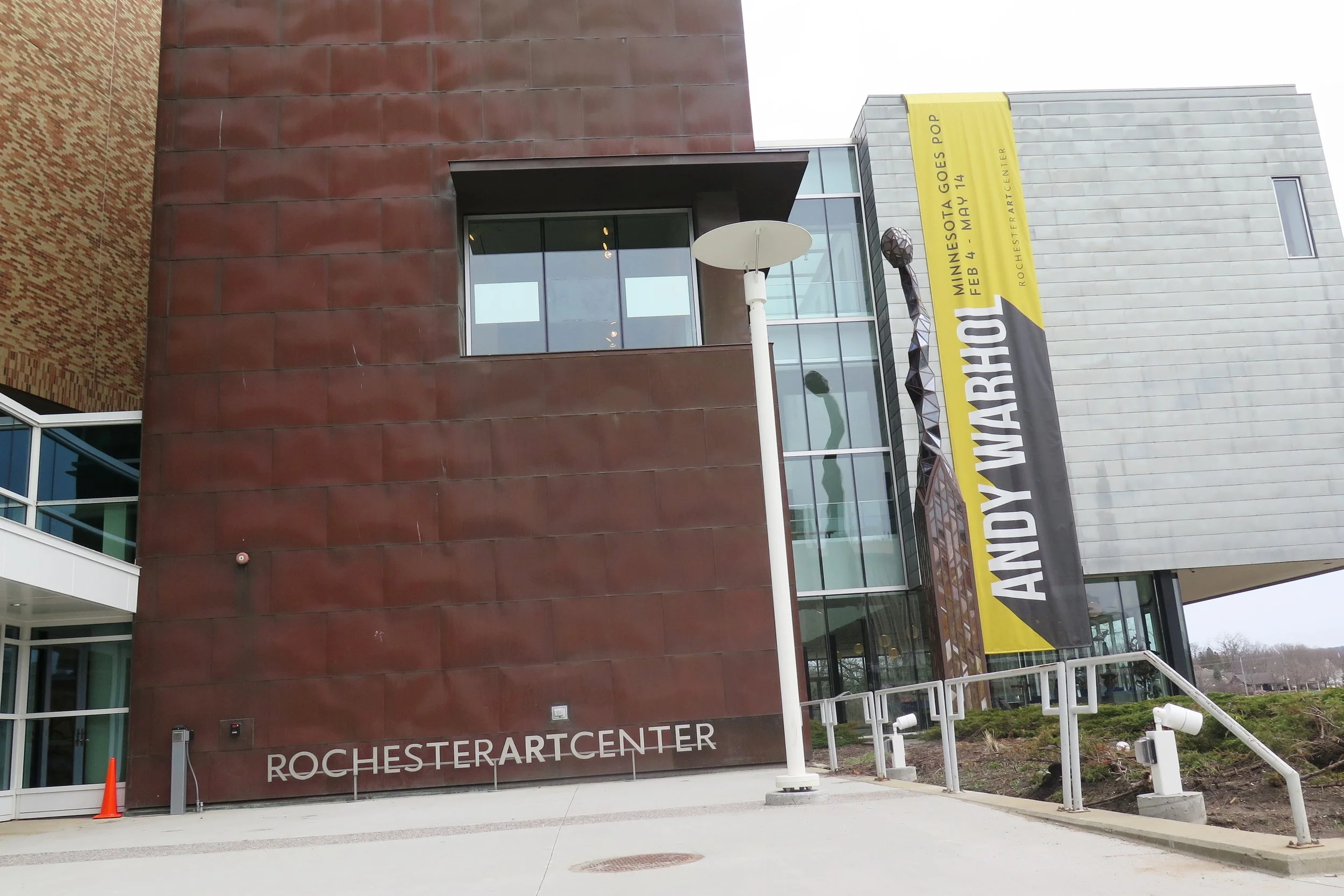Austinson: We must fix our public school systems, not abandon them
Growing up and working in the Rochester area, having close friends and a spouse that attended or work in both public and private schools, and then working in public education for over 25 years, I have always believed having private schools, working alongside public schools, is a basic function in our everyday society and good for students. Without question, society needs private school choice for our children.
Recently, I ran for State office and began to notice, on a whole different level, that there is so much need, expectation, and demand put on our cities, counties, townships, and school districts. During that humbling process, my eyes became even more open and I realized, without question, taxpayer money should never be used to fund private education, regardless of how it is presented. In the long run, it hurts both public and private schools. Even some of the people I know who work in or send their children to private schools are very leery about using taxpayer money, aka ‘vouchers’, for private schools.
What we are seeing today is ‘slight of hand’ language used to write education bills, like Minnesota Senate File 256 or SF256, that allow loopholes to use ‘public’ school funds for ‘private’ school use. This tricky language goes against the ever increasing evidence that shows private school do not perform better than public schools.
First, let me talk about the spotted cow in the room that is slowly walking right by us. The ‘slight of hand’ dialog swirling around in legislative and community circles attempting to convince the public that school vouchers paying private forms of education are a good thing. The titles of these bills say one thing but actually mean another. Basically, it is tricking people with fancy words that hide the devil in the details.
For example the ‘Tax Credits for Donations for Private School Tuition, K-12 scholarships income tax credit, and extension to tuition’ co-authored and supported by local State Senator Senjem. This dialog has been a shrewd move for more than 25 years now, starting in the Milwaukee schools, amongst certain groups and politicians who use the seductive rhetoric of ‘choice’ or ‘tax credit’ to distort the actual benefit it does to both public and private schools, students, and communities. Milwaukee today has some of the poorest performing public and private schools in the nation.
The people who use catchphrases, such as, ‘individual choice’ or ‘opportunity scholarships’ play on the heart strings of parents and our core liberties in society, freedom for opportunity and choice.
Yet, as we move forward, we must remember that privatizing any essential public function and then forcing the public to pay for it, while removing it from meaningful public oversight, actually weakens that public function and the freedoms that go with them that are the essential base of our democracy. Schools are the easy first target in this process that eventually allows seepage into other public functions. (A good example of this is all the recent accountability and oversight issues associated with operating the new US Bank Stadium. What a mess!)
Next, because the ‘schools’ are defined as ‘private’, the vouchers private schools operate by are separate than the rules the public schools follow and have minimal transparency or oversight. Private schools have the ability to avoid basic constitutional protections, such as freedom of speech and separation of church and state.
They also do not have to provide the same level of rigor in the classroom, graduation requirements, lunch programs, or special-education services. They also can suspend or expel students without due process, ignore state requirements for open meetings and records; and can disregard laws prohibiting discrimination against a student on grounds of sex, pregnancy, sexual orientation, and/or parental status. The voucher program allows private schools to use public dollars to persuade and/or teach a religious doctrine that can be at odds with individual beliefs and public policy (i.e., that birth control is sinful, women must be submissive to men, homosexuality is evil, and that creationism is the only scientifically sound theory to use while teaching world history).
If you read the details it has become pretty clear that the catchword “choice” is also ‘code‘ for funneling tax dollars away from public schools and into private, religious, or special interest schools with plenty of privateers waiting to make money off of private education.
Now, there have been dozens of studies performed across the country, one from the Brookings Institute, on the ineffectiveness of vouchers in places such as North Carolina, Indiana, and Louisiana that anyone can research and see the findings for themselves. In some states the vouchers were called ‘Opportunity Scholarships’, and in Minnesota they want to call them, in Senate File 256, ‘Tax Credits for Donations for Private School Tuition, K-12 scholarship income tax credit, and extension to tuition’ or essentially back door ‘vouchers’. Many of these studies found that vouchers have failed compared to public education results. Even a pro-voucher group from North Carolina, The Fordham Institute, put out a report concluding that vouchers fail our children, and coming from a group like that says a lot.
Also, after having personal conversations with people who either work for, or had or currently have children attending private schools, there are many worries and not all are for SF 256. First, they worry that there will be more competition in the private school arena, with more private schools being started, that will divide the already limited resources and funding.
Also, some of these new schools that start-up will have profit-making as big a priority that will have little oversight or a radical belief focus that could taint the perception of the already thriving local private schools. Also, many private schools already benefit from programs they offer that are fully paid for by public schools. These include school counselors, social workers, reading programs, and transportation to mention a few.
What many in the general society do not understand is that by state law, if a private school student have special education needs, the public school has to accommodate and pay for those services. So not only could current private schools see cuts in some programs due to their students attending other private schools, property taxes will go up due to public school increasing their levies to help recover the lost revenue of losing more students to private schools but still having to provide services for the expanding private school system.
Finally, no one doubts our public school systems have some inherent problems. But the solution is to fix them, not abandon them. Our public schools are the only institutions with the commitment, capacity, and the legal obligation to teach all children. So please remind our local legislators (Sen. Nelson, Sen. Senjem, Rep. Pierson) who push, and sometimes co-author bills, for vouchers that students in public schools often outperform those enrolled in private schools, which research from the Brookings Institute and others places confirm, and ask them to fully support local public education.
John Wayne Austinson is an Eyota resident and former Democratic candidate for Minnesota House District 26B.
Cover photo: Licensed / Canva





